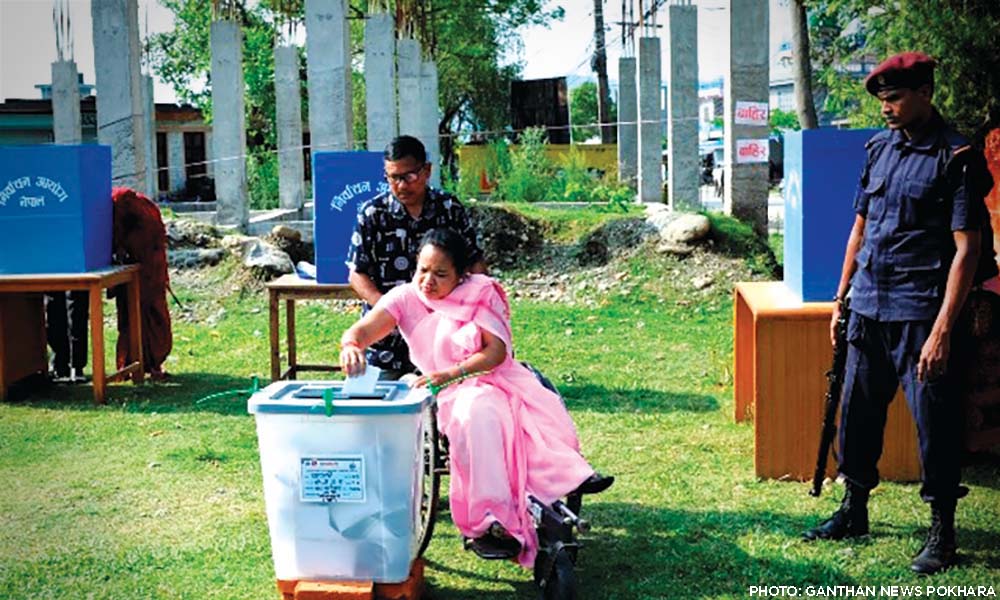For the first time in twenty years Nepalis have had a say in who represents them at a local level. This grassroots growth in democracy has seen more than two thirds of the population exercise their right to choose local Mayors, Village Development Committee Chairpersons and other public officials in recent local elections.
The term ‘local’ has a range of meanings in Nepali. It can mean anything from authentic to healthy, pure or home-grown, and even strong and trustworthy. Nepalis are hoping to see many of these qualities in their newly elected leaders. Being a young population has meant that for many Nepalis this was their first opportunity to vote for a local voice.
Local elections were last held in 1997. So far 2017 has seen six of the seven provinces successfully complete a peaceful election process. National media reported a significant turn-out to vote [70 %] despite the drawn out process. Vote counting is a manual process, and took several weeks to complete. With the exception of a small number of disputes, the counting in those six provinces went well. The result shows local representatives from the Communist Party of Nepal[CPN]-Unified Marxist Leninist [UML] winning in a majority of communities followed by representatives from the Nepali Congress [NC] and CPN-Maoist[Centre] add implications on INF’s work. The potential flow on effect of these elections for INF’s work is still unclear. Newly elected local leaders may enable better coordination with local government bodies however proposed new regulations for organizations like INF are yet to be fully assessed.
This article featured in the latest issue of Today in Nepal and was written by INF staff member Bijay Baral.



